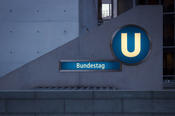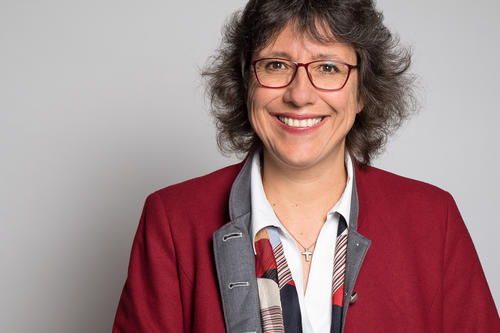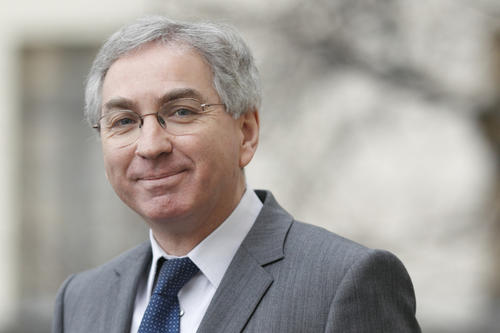Exploring Cohesion
With its first call as part of the “Grand Challenge Initiative” on the topic of “Social Cohesion,” the Berlin University Alliance is promoting networking among researchers on this topic
Sep 19, 2019
Sharpen your focus: the call on “Social Cohesion” is directed at researchers from all disciplines at the three major Berlin universities and Charité.
Image Credit: Pixabay License
A diffuse feeling is spreading throughout Germany: society is drifting apart. In talk shows, debates in the German Bundestag or on social media, as well as within families, polarization around topics such as migration or climate change appears increasingly stronger. And Germany is not alone in this. What “social cohesion” means and which developments challenge societies worldwide are central questions of the Berlin University Alliance’s first “Grand Challenge Initiative.”
“We deliberately chose a topic that also relies on the expertise of non-university institutions in Berlin.” Peter A. Frensch
With the “Grand Challenge Initiative” program, the Berlin University Alliance is addressing contemporary social challenges of global significance. The first step will be a call on the subject of social cohesion. In the two-stage competition, researchers from the three major Berlin universities and Charité can apply until October 15 in a pre-call for funding of up to 10,000 euros. The money will be used for networking to first explore the field.
The concept of social cohesion lies at the intersection between academic perspectives in the humanities, social sciences, natural sciences, and engineering; applications from all disciplines are eligible. Cooperation across disciplines and institutions is explicitly supported.
“We have deliberately chosen a subject area that is so large and complex that it cannot be dealt with by one university alone, but rather is dependent on the expertise of both academic and non-academic institutions in Berlin,” says Peter A. Frensch, Professor of Psychology and as Vice President for Research at Humboldt-Universität zu Berlin a member of the steering committee “Focusing on Grand Challenges.” The social benefit of research was another central criterion in the selection process. According to Frensch, stakeholders from politics, civil society, culture, administration, and business must also be integrated from the outset in order to be able to grasp the complex nature of the issue of social cohesion and make the results useful for society.
For political scientist Tanja Börzel, collaboration with non-university institutions is also part of everyday research life. Together with Michael Zürn from Berlin Social Science Center, she is spokesperson for the SCRIPTS Cluster of Excellence based at Freie Universität Berlin, which examines the world-wide challenges of the liberal democracy model. “The belief that we as academics can look at society from the outside and then make recommendations is outdated,” says Tanja Börzel, who was involved in finding the topic for the call.
“Berlin’s position in this research field is excellent.” Tanja Börzel
It is obvious to the political scientist that Berlin has a significant locational advantage when it comes to investigating “social cohesion”: “A modern understanding of social cohesion does not start from a homogeneous community, but understands diversity as an integral part of a society. And this diversity – be it ethnicity, religion, nationality, or sexuality – is what defines Berlin.” This is not the only reason why the city is an excellent location for research on social interaction.
Prof. Dr. Tanja A. Börzel is professor of political science and the director of the Cluster of Excellence “Contestations of the Liberal Script”
Image Credit: Martin Funck
The complex globalized world is condensing in Berlin as if under a magnifying glass: the city’s multiculturalism, but also the inequality in living conditions, social segregation, and not least the history of the divided city in East and West Germany bring together many factors that are exciting for investigating the topic.
In addition, the city offers an extraordinary landscape for the study of social cohesion: “Berlin’s position in this research field is excellent. It has a unique feature in the social sciences due to the strong link between regional studies and international relations,” says Tanja Börzel.
Right on their doorstep, academics can work together with actors from politics or civil society initiatives and build bridges from the local to the wider world. “Solutions to the challenges of our time must be global. So far, this has mainly taken place at the state level, but thinking in terms of nation states does not help with questions of this magnitude,” says the political scientist.
“It is important that the path leads us to continuous and sustainable cooperation.” Peter A. Frensch
Special formats within the framework of the “Grand Challenge Initiative” are intended to strengthen cooperation between researchers in Berlin with non-university institutions such as museums and non-governmental organizations. “We would like to create networking opportunities for scientists and scholars with interesting partners in the city. For the Berlin University Alliance, it is important that the path leads us to continuous and sustainable cooperation,” says Frensch.
Prof. Dr. Peter A. Frensch is Vice President for Research Affairs at Humboldt-Universität zu Berlin and a member of the steering committee “Focusing on Grand Challenges.”
Image Credit: Matthias Heyde
In the first part of the call – a kind of “exploration phase” – applicants can receive funding of up to 10,000 euros for six months, beginning November 1, 2019. The funds can be used to establish initial contacts and prepare content, for example to reimburse travel and accommodation expenses for potential project partners from abroad. “Groups can already start forming and consider how they would like to contribute to the topic,” says Frensch. The money from the first round of funding could be used, says Tanja Börzel, to build networks and “get something off the ground.”
Researchers from the postdoctoral level upward who are employed at one of the member institutions of the Berlin University Alliance are eligible to apply. Projects consist of a fixed group of at least five eligible applicants. This group is made up of members from at least two of the three Berlin universities and Charité. The “big” call for applications is then planned for 2020.
Together, says Peter A. Frensch, we can develop answers to global challenges in Berlin in just a few years: “In five to ten years, Berlin could be a highly recognized location worldwide where questions of social cohesion will be examined on a level that matches their complexity.”













